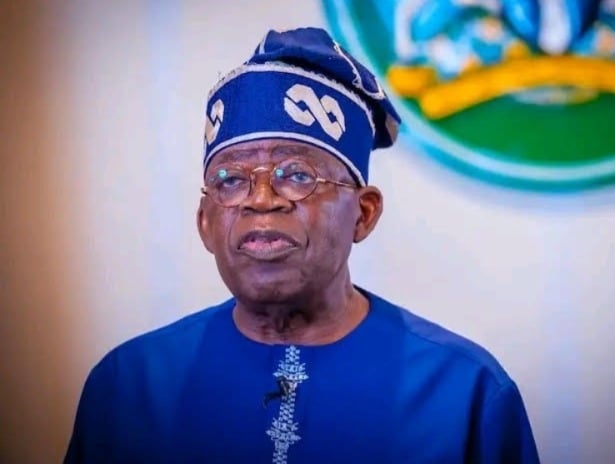When the news broke that President Bola Tinubu had granted a posthumous pardon to Herbert Macaulay and Major General Mamman Vatsa, the reactions were mixed. Some hailed it as an act of statesmanship and reconciliation. Others dismissed it as another symbolic gesture that adds nothing to the daily realities of Nigerians struggling to feed themselves. Both camps have a point, but let’s be honest—most Nigerians don’t lose sleep over state pardons. What they care about is the price of garri, not who gets forgiven by Aso Rock.
Still, this particular pardon deserves attention. Not because of the ceremony, but because of what it says about how we treat history and justice in this country. Vatsa’s case was one of those dark chapters that many Nigerians over 40 still remember. He was a soldier, poet, and by most accounts, one of the more refined officers of his time. Yet in 1986, under General Ibrahim Babangida’s regime, he was accused of plotting a coup and executed after what many called a kangaroo trial. Even then, many believed he was a scapegoat, a victim of palace politics within the military hierarchy. His death was swift, brutal, and still controversial almost four decades later.
By granting him a posthumous pardon, Tinubu is not rewriting history—he’s acknowledging that history may have been written in bad faith. But here’s where I pause: of what use is a pardon to a dead man? It might ease the conscience of a state that killed one of its own, but it does nothing for his widow, who still bears the pain, or his children, who grew up fatherless. Nigeria has a habit of apologising after the damage is done.
Herbert Macaulay’s case is even more curious. The British jailed him in 1913 over allegations of financial mismanagement while working as a surveyor in Lagos. That conviction haunted his record even though he later became one of the founders of modern Nigerian nationalism. The man died in 1946. Almost eighty years later, a Nigerian president forgives him for a colonial-era conviction.
Of course, gestures like this are not new. Every president finds a way to use the prerogative of mercy to polish his image or settle old scores. President Olusegun Obasanjo used it to free political prisoners. President Goodluck Jonathan used it to pardon his former boss, Diepreye Alamieyeseigha, the Bayelsa governor who once fled London disguised as a woman. President Muhammadu Buhari used it on some convicts in 2022 to mark Democracy Day. Now Tinubu has joined the club.
But this latest batch is quite expensive. Apart from Vatsa and Macaulay, the President also pardoned Farouk Lawan, the former House of Representatives member jailed for demanding a bribe during the fuel subsidy scandal; Mrs Anastasia Nwaobia, a retired Permanent Secretary; Hussaini Umar, a lawyer; and Ayinla Alanamu. All these were people convicted of corruption. According to the government, they have shown remorse and deserve reintegration into society. I wonder what that means to the average prisoner rotting in Kirikiri for stealing a phone.
Farouk Lawan’s name, for instance, still brings back bitter memories of the 2012 subsidy probe where he was caught on tape collecting $500,000 from Femi Otedola. It took almost a decade before he was convicted. We seem to run a system where repentance begins when a politician’s prison mattress feels uncomfortable.
To be clear, every president has the constitutional power to pardon whoever he wishes. But it loses meaning when that power becomes a political instrument rather than a moral one. Clemency should not be a reward for influence. It should be a recognition of genuine reform. How do you explain to Nigerians that the same country that commuted the sentences of 82 inmates and reduced the jail terms of 65 others still keeps thousands awaiting trial for years because they can’t afford lawyers?
And then there’s the emotional angle—Tinubu also pardoned the Ogoni Nine, including Ken Saro-Wiwa, who were executed in 1995 by the Abacha regime. That one struck a nerve. For years, the Niger Delta people have demanded a national apology for what they see as judicial murder. Saro-Wiwa’s struggle against environmental degradation by oil companies made him an international symbol of resistance. His hanging by the state was one of the lowest points in our history.
It’s good that the President also gave national honours to the Ogoni Four who were killed earlier. But here’s my question: what’s next after the press releases and the photo ops? The Niger Delta is still choking under pollution. Ogoniland still has blackened rivers and poisoned farmlands. The cleanup promised since 2016 has been moving slower than a snail on valium.
On one hand, you can say the President is promoting national healing. That’s fair. Nigeria is full of old wounds that need closure. However, healing cannot happen through selective forgiveness. If we truly want justice, let’s start by reforming the judiciary that convicts the poor faster than the rich. Let’s look at the prisons where thousands are kept without trial. Let’s revisit cases of police brutality and wrongful convictions. Let’s forgive the living before we start issuing pardons to the dead.
The press release also mentioned that 82 inmates were granted clemency and 65 others had their terms reduced. Seven death sentences were commuted to life imprisonment. On paper, that sounds like mercy. In practice, it’s a reminder of how broken our justice system is. Most of these inmates are victims of a system that treats poverty like a crime. Some have spent years longer than their original sentence because their case files got lost.





